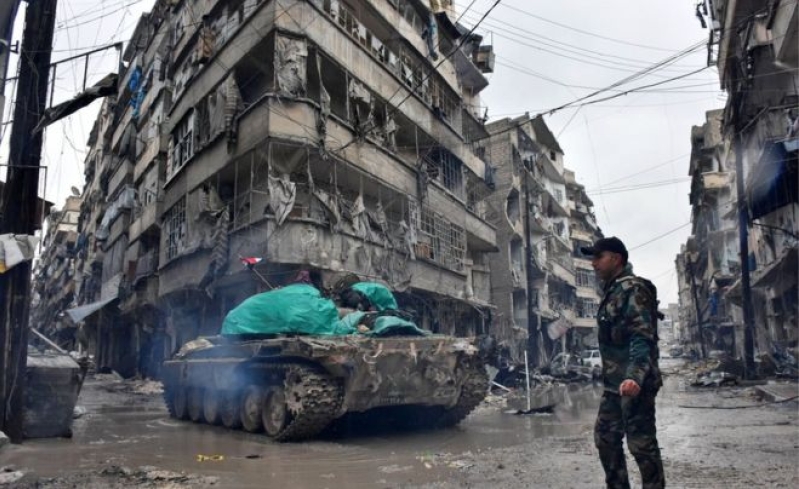
With Aleppo's successful recapture by pro-Assad forces, now the question lies in the uncertainty of the future of Syria. As analysts say, the war is far from over.
President Bashar al-Assad and his troops, mainly backed by Russia and Iran regarding money, armament and diplomatic support, and with Russia sending its own troops in late 2015, were able to put their hold on one of the biggest strongholds of opposition groups. Aleppo, Syria's 2nd biggest city, became central in the Syrian fight from July 2012 onwards when opposition troops made it their refuge ground. It also became a 'highly prized' ground being the financial center of Syria.
With Iran and Russia on President Assad's side, political analysts believe the question of "What's next for Syria?" should be directed to both Iran and Russia, not to Assad.
Although Assad showed promise at the beginning of his presidential term, he had to wade through decades of alliance with neighboring countries, with goals far different from his.
Assad strongly opposed the United States' invasion and occupation of Iraq, as well as the building of the Qatar-Turkey pipeline.
Syria and the US' diplomatic relations crumbled significantly after the 9/11 attacks, with the US putting the blame on Syria for failing to block foreign fighters as they wade through Syria on their way to Iraq. While Syria also found problems with keeping Iraqi refugees, they also failed to keep them out of their borders.
Assad also opposed the Qatar-Turkey pipeline, a project that will enable the distribution of natural gas to Europe and Turkey. The proposed pipeline will be cutting through Syria, as well as Saudi Arabia, Jordan, Kuwait and Iraq. Some analysts believe Qatar and Turkey's involvement in the war is due to Assad's disapproval of the project. And Assad's rejection is seen to be pro-Russia, as the Qatar-Turkey pipeline will seriously undermine one of Russia's top exports.
As one analyst says, "Pipelines are in place already in Turkey to receive the gas. Only al-Assad is in the way. Qatar along with the Turks would like to remove al-Assad and install the Syrian chapter of the Muslim Brotherhood. Once the Brotherhood is in power, the Emir's broad connections with Brotherhood groups throughout the region should make it easy for him to find a friendly ear and an open hand in Damascus."
With the Syrian Civil War now finding causes across a wide disarray of social, economic and political motivations, analysts say there is still much to gain in Syria outside its main areas: the cities, the western areas, and the coastline.
With Aleppo now in Assad's hands, rebels immediately sought refuge in Idlib province, located in the southwest of Aleppo. Foreign and local troops are not withdrawing, and Idlib province is now seen as the most likely target.
But both pro-regime and opposition groups now face a bigger challenge: an increased division within their troops. An analyst says, "Much of the regular Syrian army has disintegrated into a variety of loyalist militias... and their (US-backed opposition groups) relationship with the incoming US administration is uncertain."
The Syrian Civil War sparked in 2011 due to the onslaught of the Middle East-wide Arab Spring. In 2012, pro and anti-Assad troops moved their battleground to Aleppo. Aleppo is one of the oldest cities in the world, serving as an important trading post between Asia, the Middle East, Africa and Europe. Its Old City is declared a UNESCO World Heritage site but now is reduced to rubble.







